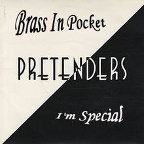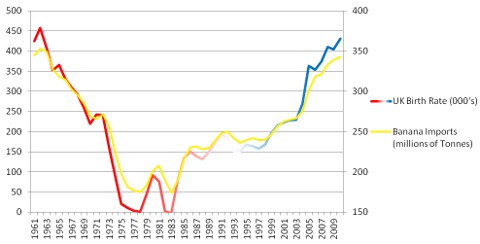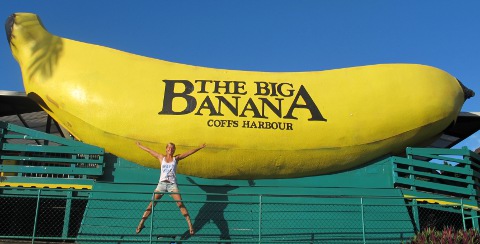Tuesday 7 May, 2013, 08:14 - Spectrum Management
 The Aussie auction of 700 MHz spectrum (one of the first of it's kind in the world) has, on the one hand, left the Australian government a few cents short of a brass razoo but at the same time left operators paying big bikkies for the spectrum. Wireless Waffle has previously discussed who the winner of the UK spectrum auction actually was. Whilst the UK auction (and most others around the world) are for 800 MHz spectrum, the Australian auction is relatively unique in that it is for 700 MHz spectrum. The auction has left a third of the available 700 MHz unsold, which is not a good place to be as: (a) the spectrum is not being used, which is clearly inefficient, and (b) it means it will have to be re-auctioned, which means a bit more hard yakka for the Australian regulator ACMA.
The Aussie auction of 700 MHz spectrum (one of the first of it's kind in the world) has, on the one hand, left the Australian government a few cents short of a brass razoo but at the same time left operators paying big bikkies for the spectrum. Wireless Waffle has previously discussed who the winner of the UK spectrum auction actually was. Whilst the UK auction (and most others around the world) are for 800 MHz spectrum, the Australian auction is relatively unique in that it is for 700 MHz spectrum. The auction has left a third of the available 700 MHz unsold, which is not a good place to be as: (a) the spectrum is not being used, which is clearly inefficient, and (b) it means it will have to be re-auctioned, which means a bit more hard yakka for the Australian regulator ACMA.The fact that spectrum could remain unsold had been predicted by some, as a result of having set the reserve price too high. So just how does the price paid in the Australian auction compare to that paid elsewhere? The table below sets out the prices paid for 800 MHz spectrum in Germany, France, Italy and the UK and compares this to the price paid for 700 MHz spectrum in Australia. The comparison made is on a 'price per MHz per population' basis and for fun, GDP (PPP) has been factored in to see whether this makes any odds. Prices are all converted to Euro.
| Country | Band | Euro per MHz per pop | Euro per MHz per pop (GDP adjusted) |
|---|---|---|---|
| Germany | 800 MHz | 0.73 | 0.68 |
| France | 800 MHz | 0.69 | 0.71 |
| Italy | 800 MHz | 0.83 | 0.98 |
| United Kingdom | 800 MHz | 0.51 | 0.52 |
| Australia | 700 MHz | 1.06 | 0.92 |
What does this tell us? Other than the fact that it demonstrates an ability of Wireless Waffle to do some simple maths, it shows that the price paid per MHz per person in Australia was almost 40% higher than the average of all these countries put together. Similarly, when scaled for GDP, the price paid is still 20% over the odds. The only more expensive spectrum was that sold in Italy and this is only because Italy's GDP per capita is somewhat smaller.
So why would operators down under be willing to shell out more moolah for spectrum than elsewhere? Perhaps the secret lies in the rapid population growth taking place. Just a few days ago, it was predicted that the Australian population had reached 23 million. But more importantly, the population is predicted to rise to 40 million in around 40 years time representing growth of around 1.5% per year. This is much faster than the population growth in other countries and means that in just 10 years time, the population of Australia will be 15% larger. If you do the price per person calculation now, the €1.06 becomes €0.92 and the €0.92 becomes €0.80. This puts the prices on a GDP adjusted basis just 5% ahead of average. In 15 years time the prices would be 5% below average. So over the life of the licence maybe these prices are not too high. Of course the population of other countries is growing too, and this would have to be factored in to any more detailed comparisons (such as a competent economist might make).

There are statistics to show that the number of bananas imported into the UK is closely correlated with the growth in population (as the above graph clearly demonstrates). It therefore follows, using Spock-strength logic, that there is a connection between bananas and the price differentials paid at auction for spectrum. Australia grows lots of bananas and it's population is rising, and lots was paid at auction. Q.E.D. as they used to say in ancient Rome.
What does this prove? Nothing at all, but having called the European Commission 'nuts' last month, the time was right to make another foodstuff related comment about a regulator somewhere or other. And so it seems (as so obviously can be deduced) ACMA is clearly bananas!

